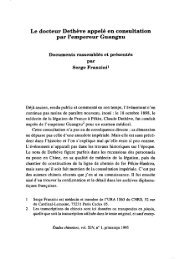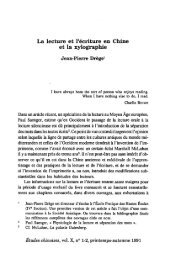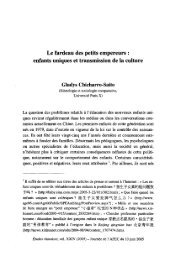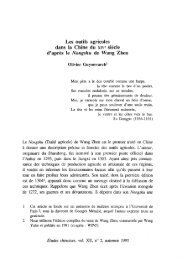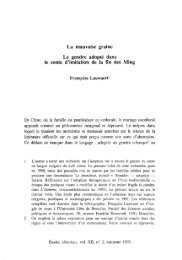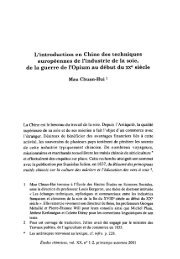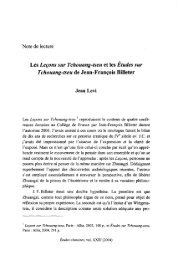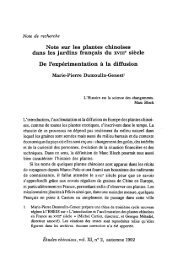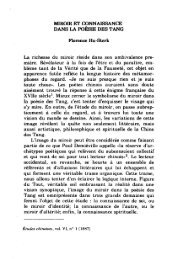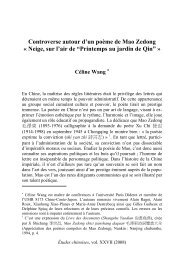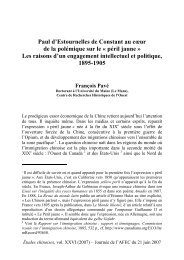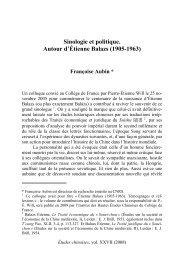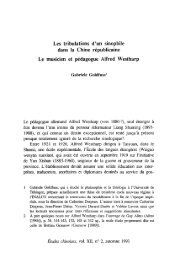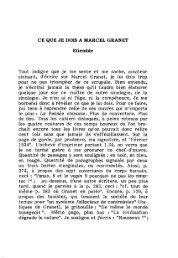You also want an ePaper? Increase the reach of your titles
YUMPU automatically turns print PDFs into web optimized ePapers that Google loves.
Comptes rendus<br />
nothing of "China," Sinim is largely of linguistic interest as the possible<br />
origin of Modem Israeli Hebrew "Sin" (meaning China).<br />
Before proceeding further with the substance of this chapter, it is<br />
worth noting the numerous errors that crop up in it. Some may consider<br />
this nitpicking, but I think that, although we ail are subject to lapses and<br />
mistakes, a pattern of consistent errors offers dues to the depth and<br />
soundness of one's scholarship. Thus, for example, we learn several times<br />
that "in the Wade-Giles romanization system" the dynastie name Qin is<br />
rendered "Chin" (p. 78); this should, of course, be Ch'in. Later, the city of<br />
Canton is given in pinyin as Zhuangzhou (p. 103); this should, of course,<br />
be Guangzhou. And, for some unexplained reason, the Zongli yamen, the<br />
Qing dynasty's first foreign ministry, is often given in Wade-Giles<br />
transcription, Tsungli yamen (p. 107), and sometimes in pinyin. However,<br />
thèse are meaningful errors only because of their frequency 3 . A more<br />
significant error is the statement (p. 75) that the "Qing rulers were from<br />
the nomadic Manchu tribes of the North who had overthrown the Ming<br />
dynasty and imposed their impérial rule on the native population in 1644."<br />
First of ail, the Manchus were semi-nomadic, not nomadic (like the<br />
Mongols), as they engaged in a limited amount of agriculture even if they<br />
preferred not to. Far more important, though, is the glaring historical fact<br />
that the Manchus did not conquer the Ming (although this is a widespread<br />
perception). The rebel Li Zicheng (1606-1645) brought down the Ming<br />
dynasty and had himself installed as emperor, albeit with a rather short<br />
half-life. The Manchus reached accord with the Ming gênerai Wu Sangui<br />
(1612-1678) and were invited into China.<br />
This is not simply an error, though, for it betokens the larger thème<br />
of this book - namely, that the Chinese hâve always been victims of others:<br />
Westerners, northern peoples ("nomadic... tribes"), and later Japanese.<br />
Just when scholarship was returning agency to historically disenfranchised<br />
groups and examining how peoples hâve negotiated gender, ethnicity,<br />
nationality, and the like, Liu argues that the largest and most populous<br />
empire on the globe was a victim. Even when forced to admit that Chinese<br />
who confronted Westerners in the sixteenth-through-nineteenth centuries<br />
used a number of deprecatory expression for them - such as fangui HJ^L<br />
513



